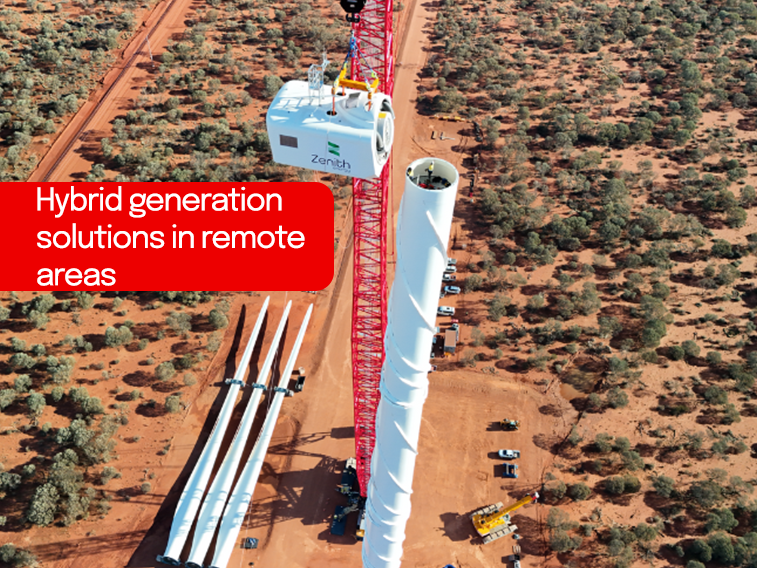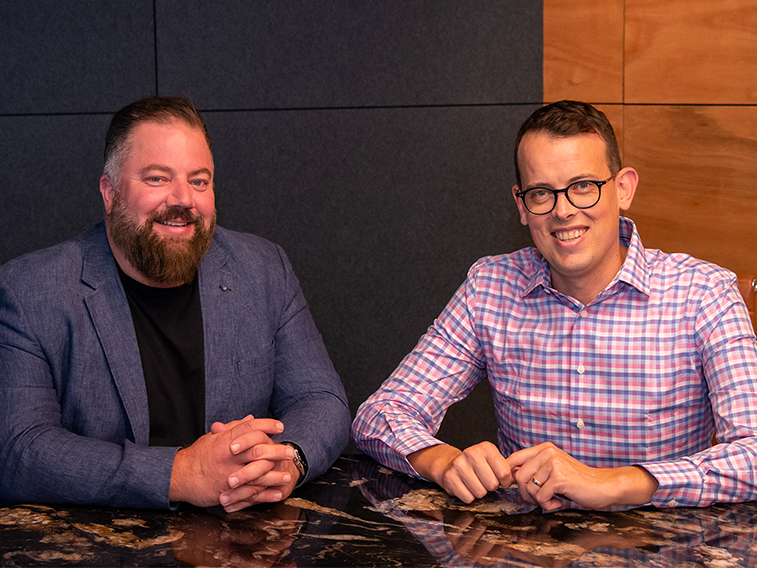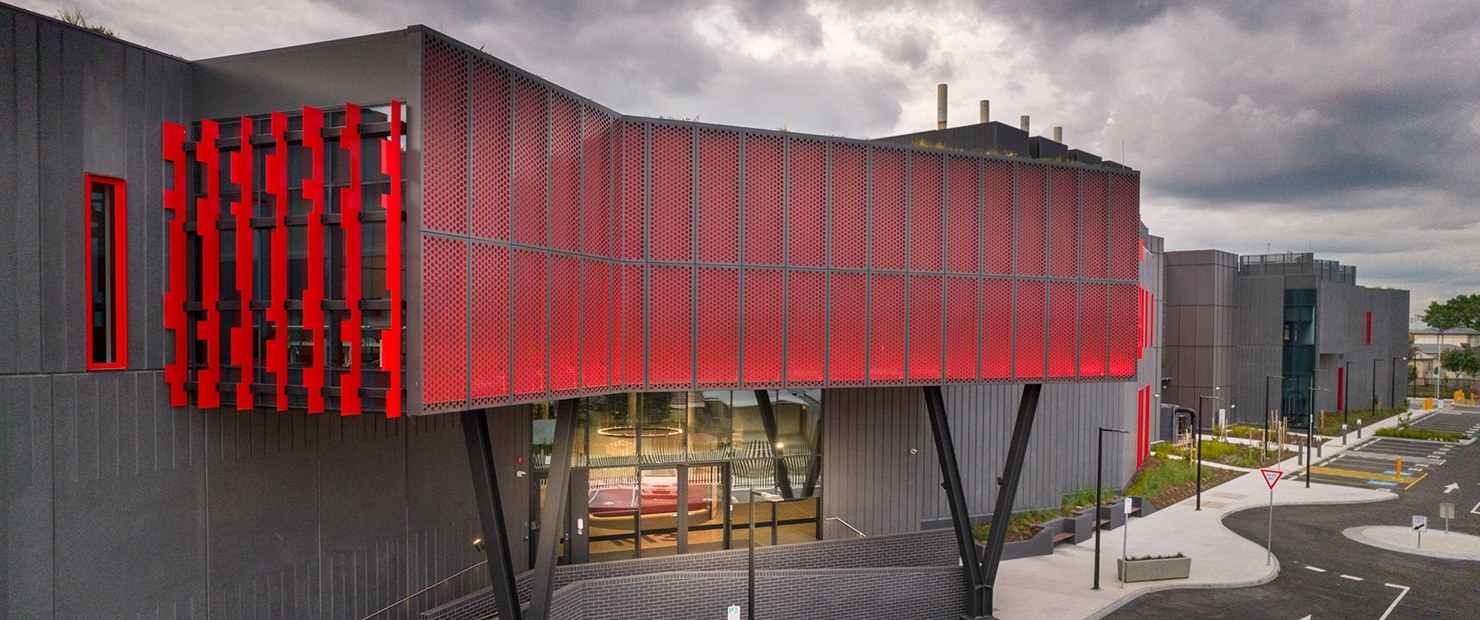NAB client Zenith Energy’s innovation is helping decarbonise the mining sector through providing efficient hybrid generation solutions in remote areas.


Kapitol Group shows how a culture of innovation and the right banking partnership has helped build a small construction start-up into a significant industry corporate in just five years.

When David Caputo (left) and Andrew Deveson made the “leap of faith” to back themselves and start a diversified construction business, they were quietly confident they could convert their valuable tier one industry experience into a scalable success.
But while there was definite interest in the new venture, the pair found the phones weren’t exactly running hot and securing the appropriate banking facilities for their vision was proving a challenge.
“Being a start-up construction company for what we were trying to do commercially is still actually quite unusual,” Deveson says today.
“We started out as two guys just trying to make it happen. Everyone liked the idea, but there weren’t that many people who wanted to be the first one, two or three to give us a go. Which is why we’re so appreciative of NAB’s support from early on.”
Caputo adds: “We were motivated to go out and do things differently from what we’d experienced in the past. But there was zero backing until NAB came along and decided to take a chance on us and our vision for Kapitol Group.”
Since then, Kapitol has gone from an initial $160,000 job building a gate in 2018, to reach its five-year milestone in March 2023 along with about 200 employees, a current forecast annual turnover of more than $450 million and as a valued NAB Corporate and Institutional Banking customer¹.
As ex-Multiplex regional directors with more than 40 years’ experience between them, Kapitol’s founders had previously managed many successful major construction projects in Victoria. Their new venture came onto NAB’s radar in 2018 as a high-growth prospect with a strong operating model.
NAB Corporate Banking Director Daminda Wijesundera says what made Caputo and Deveson stand out was their industry experience coupled with a well-prepared strategy.
“They demonstrated sound commercial acumen, strong commercial management breadth and were able to clearly articulate their value proposition,” Wijesundera says.
NAB’s industry expertise suggested Kapitol would be an organisation to support from the initial onboarding as a NAB Business Banking customer through the steps to a Corporate and Institutional Banking level.
As part of the growth strategy for Kapitol, NAB brought in an expert team who were able to plan the milestones needed to extend bank guarantee facilities which would enable even larger projects and an eventual move to a more corporate financing structure.
Deveson says: “NAB was able to look deep into our operating structure, strategy and forward planning and find a way to support us early on. We didn’t expect to be treated like tier one from the start but really appreciated NAB’s foresight and willingness to bring its own tier one and tier two construction banking team to the table from the outset which allowed us to grow with our clients.”
Caputo says acknowledging NAB’s support was a valued part of the recent celebrations for the five-year company milestone. “Without the NAB team’s support none of the achievements we’ve seen over the last five years would have happened,” he says.

The years of Kapitol’s growth have also coincided with some significant shocks, from the onset of Covid at the end of the second year of operation to subsequent supply chain issues and significant price escalations that have seen insolvencies across the industry heading towards a decade high2.
Caputo and Deveson say the challenges of the past several years have helped Kapitol to innovate on its technology, culture and process efficiencies.
“The way we’ve responded as a business to those adverse times has really made a difference to who we are today,” Caputo says. “Having the right workplace culture, the best systems and a healthy work-life balance is actually making us highly productive.”
The business now offers about 8000 hours of ongoing training to upskill staff annually while working on succession planning to build attractive career pathways from the start, he says.
Kapitol has also implemented a five-day working week for all staff3, against the industry norm of six. Most work Monday to Friday, while site managers work 10 days in a 14-day cycle, making an average of five days a week, including alternate Saturdays. There is also a large pool of trained temps to help with coverage, Caputo says.
These sort of initiatives and positive responses to employee feedback have recently helped Kapitol to win the WRK+ 2022 Best Place To Work in the over 100 employees category4.
Another big part of the Kapitol success has come through honing expertise in complex data centre projects after taking on their first one with Brisbane-based NextDC5 in 2018.
Caputo says Kapitol has managed to build a team with the right digital engineering technology for a key competitive edge in this relatively new, but high-performing market powering the digital economy.
“They’re amazing jobs if you know how to do them, but not if you don’t,” he says of the centres Kapitol has since worked on for NextDC and also Microsoft6.
Kapitol is now working on an $800 million pipeline7, including the conversion of the old Philip Morris tobacco factory in Melbourne into commercial offices and gymnasium space8.
“Our biggest motivator is continually trying to change not just our business but really trying to change the industry,” Caputo says. “I’d like to see everyone compete as an industry to get better.”
He says serious ongoing industry issues to solve include enabling greater gender diversity and better work-life balance overall, as well as embedding more sustainable practices into projects.
To this end, Kapitol is building awareness of construction as a viable career for women at a school level and leading by example through promoting its flexible work practices and training.
NAB’s Wijesundera says this innovation-led approach has helped build the talent pool that has taken Kapitol on its successful path.
“It’s been a pretty extraordinary rise from being a start-up in 2018 to becoming a Corporate client by early 2021 and then to the sort of jobs they are doing today with the likes of NextDC and Microsoft,” Wijesundera says.
“Kapitol have managed to significantly grow revenue and successfully complete a number of projects in a time of great turbulence for the industry. They have done so by a sound understanding of the client needs and an ability to execute smoothly.
“At NAB, we are looking forward to continuing to work with Kapitol and the pipeline of exciting projects and continuous innovation.”
© National Australia Bank Limited. ABN 12 004 044 937 AFSL and Australian Credit Licence 230686.